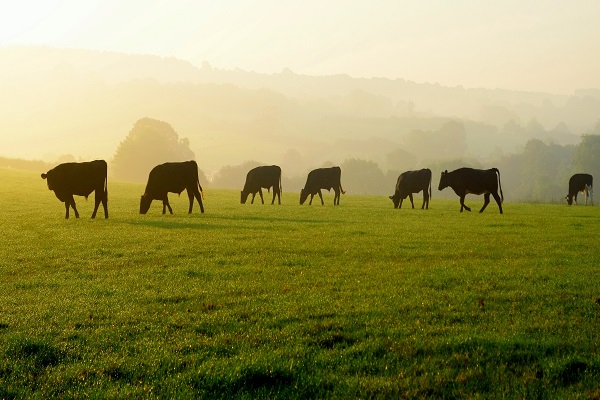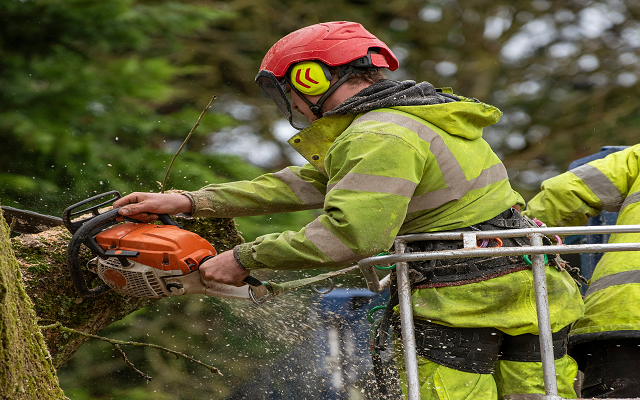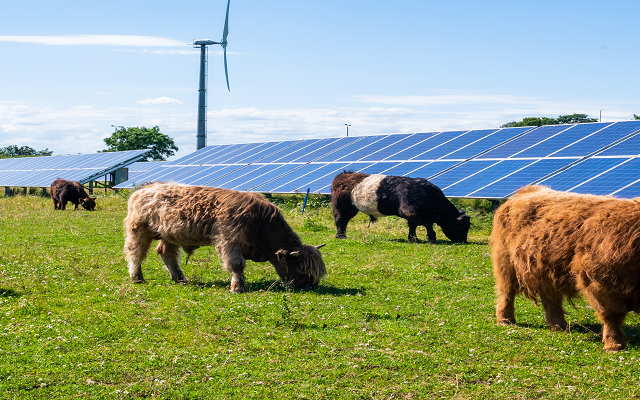Land Business Update | Week Commencing 20th February 2023
FARMING
Scottish agricultural reform route map published
This sets out the timetable for changes to farming and environmental policy between now and 2027 to help land managers plan for them. It confirms that the existing support will continue in 2023 and 2024 as expected with the changes to support starting in 2025:
- New conditionality requirements (from 2025). This could be based on Good Agricultural and Environmental Conditions (GAECs) and Statutory Management Requirements (SMRs) but has not been confirmed.
- Tier 1 Base Payments, for meeting essential standards (from 2025).
- Tier 2 Enhanced Payments, for additional measures that will reduce greenhouse gas emissions and restore and improve nature (from 2026).
- Tier 3 Elective Payments, which land managers can choose for a particular species or habitat, to support conversion to alternative forms of agriculture such as organic production, encourage innovation and provide supply chain support (from 2027).
- Tier 4 Complementary Payments, for training and advice for land managers (from 2027).
Existing schemes, such as the Less Favoured Area Support Scheme and Agri-environment and Climate Scheme will continue until 2026, after which they will change, although no details are available. Although generally welcomed, Scottish Land and Estates said that some detail was still missing and, importantly, the total amount of funding. Helpfully, the route map includes a schedule of announcements; more information on conditions for BPS 2025 and the Agriculture Bill Consultation report are expected in April-June this year. We will cover the route map in more detail in our Scottish Farming Update and please contact Mary Munro, head of farming in Scotland, if you would like to discuss the route map.
Apply for funding under the Round 2 of the Farming Equipment and Technology Fund (FETF)
English farmers can now apply for funding to improve agricultural productivity and sustainability under the new round of the FETF. This time, Defra has split the fund into two themes: 1) Productivity and Slurry items (now open for applications and closing on 4th April) and 2) Animal Health and Welfare items (opening in March). The fund is competitive, with a minimum grant amount set at £1,000 and capped at £25,000 per theme. Applicants who already received funding under the 1st round are eligible to apply again. More information is available in this Defra guidance note and do contact Alice Johnson if you have any questions or would like help with making an application.
SFI Annual Health and Welfare Review
The Annual Animal Health and Welfare Review has now been launched under the SFI in England. Eligible farmers can get funding for annual vet visits, focusing on improving the health of their animals. The review will include discussion around medicine use, current animal health and welfare practices and carry out some tests for, for example, Bovine Viral Diarrhea in cattle and Porcine Reproductive & Respiratory Syndrome in pigs. The payment rates per review are: pigs – £684, sheep – £436, beef cattle – £522, dairy cattle – £372. The first step of the application process is to register online here.
Higher Level Stewardship and recovery of payments under extension agreements
For HLS agreement holders who are currently in a five year agreement extension period, any breach that may incur a payment recovery will only be applied to the extension period, and not to the full duration of the agreement. If you have any questions about an agri-environment scheme payment recovery, please contact a member of our farming team.
Help Defra in tackling avian flu by reporting dead wild birds
If you spot the following you are encouraged to report them using the online reporting system for dead wild birds or by phoning Defra on 03459 33 55 77:
- One or more dead wild bird of prey (i.e. an owl, hawk or buzzard).
- Three or more dead birds that include at least one gull, swan, goose or duck.
- Five or more dead birds of any species.
ENERGY
Sustainable homes more attractive for potential buyers
The rise in energy bills has increased the number of house buyers looking at sustainable homes, with high performing insulation, high-specification glazing and solar panels the top three most popular features, according to a survey by Turley. Eco-properties are seen as cheaper to run due to their energy efficiency measures, and survey results showed that upkeep costs are the second most important factor that house buyers look at when making house purchase decisions. With new Energy Performance Certification standards coming into force over the next few years, looking at energy efficiency of homes before purchase is important. Read more on upcoming EPC regulations in our latest guidance document here.
Communal solar panels trialled in the UK
The panels, which are part of a trial in Cardiff led by the Welsh government, use a technology that provides solar energy to a whole block of flats as a single unit, instead of having individual solar systems for each flat, meaning reduced installation and running costs. Read our blog on renewable energy opportunities for farming businesses in this blog and contact Lauren Gibson-Green if you have any questions.
Welsh businesses supported on their decarbonisation journey
The Welsh government has launched a new loan scheme to help businesses take steps to reduce their carbon footprints. The Green Business Loan Scheme will support investments in renewable energy, retrofitting premises and equipment upgrades to increase energy efficiency. Businesses will also have access to advice from the Business Wales service to help them decarbonise.
ENVIRONMENT
Second round of Landscape Recovery Scheme to open this spring
Defra is looking to fund a further 25 projects under the second round. To be awarded the funding, projects need to be at least 500ha and aim to protect and/or create habitats, whilst reducing environmental impacts. Example of projects funded under the last round included wetland and meadow restoration and creating wildlife corridors. Defra is holding a series of webinars for those who are interested and would like more information on this opportunity. More detail is available here.
Climate change makes the record hot 2022 in the UK 160 times more likely
2022 was the hottest year on record in the UK and the Met Office has said that, without global heating, such warm temperatures would be expected only once every five centuries. The average UK annual temperature was higher than 10C (centigrade) for the first time and is almost 1C above the average of the last three decades. Since 1884, all 10 years recording the highest annual temperature have occurred from 2003. By the end of the century, under a medium future emissions scenario, UK average temperature of 10C could occur almost every year. Richard Allan, a professor at the University of Reading, said that, “Higher temperatures in the UK are contributing to more severe heatwaves, droughts and wildfires but also more intense rainfall events and flooding. These impacts will become progressively worse until global temperatures are stabilised by cutting global carbon emissions to net zero.”
FORESTRY
Woodland Carbon Guarantee opens for seventh auction dates announced today
This is a government scheme designed to stimulate tree planting and the woodland carbon market. It provides people planting trees that are eligible for the Woodland Carbon Code with the option to sell their verified Woodland Carbon Units (WCUs) for a guaranteed price, which is index linked. It provides ‘planters’ with the option to sell to the government – so they can use that price as a minimum when making the decision on whether to plant – but they can also sell their WCUs for more to other people if carbon prices rise faster. The deadline to take part in the seventh auction is 30th April. Bidders in the auction submit the minimum price they are willing to accept from the government for their units (if they decide to sell to the government); the average price of successful bids was £22.61 in the sixth auction. The Forestry Commission has indicated that it expects bids below £30, which it has set as the reserve price.
Tree Health Pilot scheme now open
This scheme, which is open for a second time, provides grants and advice to reduce the impacts of tree pests and diseases and increase resilience. It funds felling diseased trees and improvements to tracks and other infrastructure, restocking and maintenance of newly planted trees, and bio-security items. It is administered by the Forestry Commission, which has tried to make the scheme process simpler and now includes funding for forestry / land agent input to create a bio-security management plan. The pilot scheme is available in London, the South East, the North West and the West Midlands. It is expected to become a nationwide Tree Health Scheme from 2024/25. Please call Hugh Williams in our forestry team if you would like to discuss tree health and the scheme.






